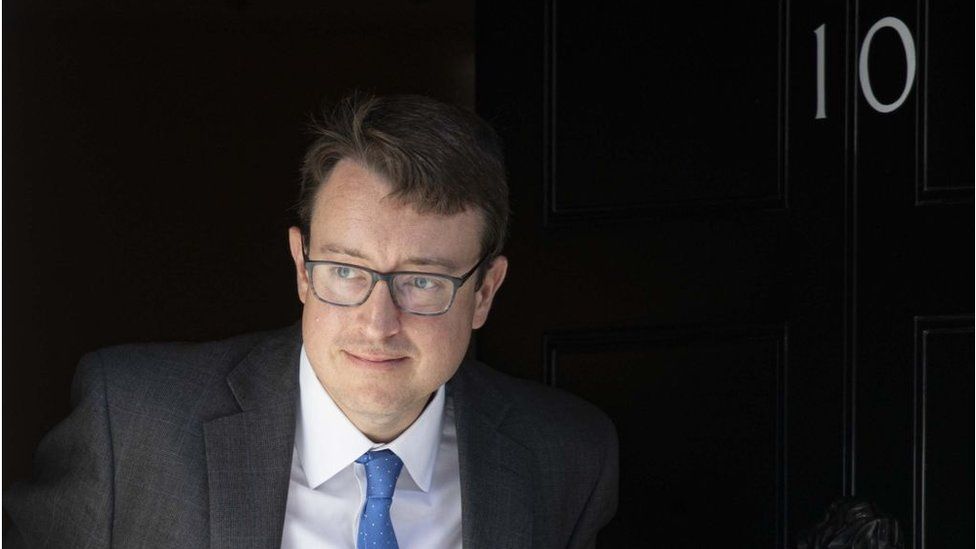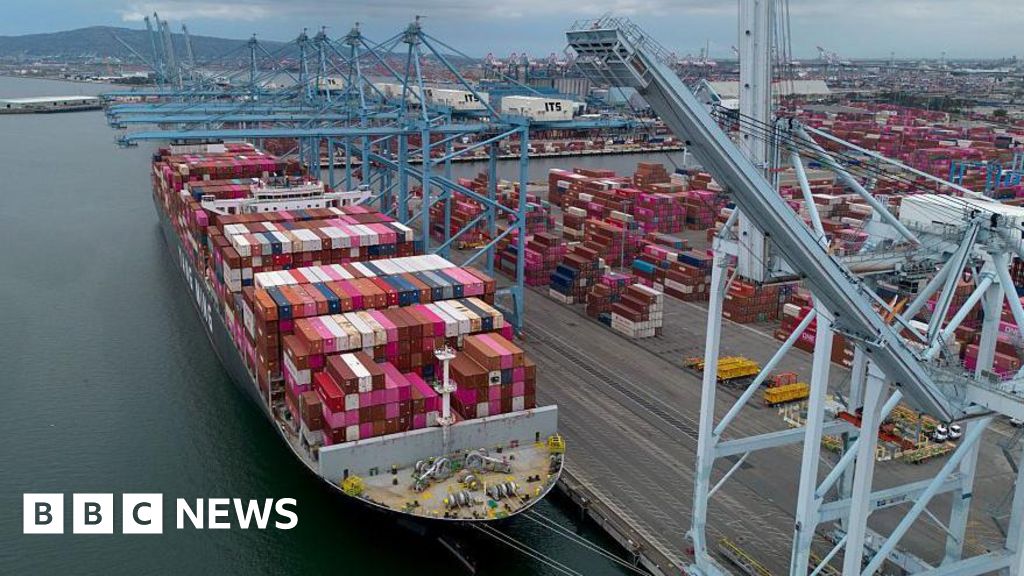ARTICLE AD BOX
 Image source, Getty Images
Image source, Getty Images
A Treasury minister has warned employees not to expect their wages to rise along with the soaring rate of inflation.
Simon Clarke said that big increases in salaries to meet the rising cost of living could end up in a 1970s style "inflationary spiral".
This happens when wage rises help push up the cost of living.
Mr Clarke said that employers should be "very careful" in setting pay rises to prevent this.
He warned that inflation could become a "self-fulfilling prophecy".
Inflation measures an overall increase in prices over time. For example, if a loaf of bread costs £1 one year and £1.09 the next year, then that's an annual inflation rate of 9%.
On Thursday the Bank of England said that inflation could reach more than 11%.
In a BBC-commissioned survey of more than 4,000 people, 82% said they thought their wages should increase to match the rising price of goods and services.
But Mr Clarke, who is chief secretary to the Treasury, told the BBC that "unrealistic expectations around pay" could "intensify this endless inflation problem".
The public sector pay review bodies are due to report in the coming weeks on the level of increase for workers - including employees in health, schools and prisons.
Unions are pressing to have the pay increases reflect the rising cost of living.
Mr Clarke is the Treasury minister in charge of the pay review body process.
His comments are the clearest steer that public sector workers in general will not get settlements close to the current rate of inflation.
'Existing budgets'
The independent bodies have begun to report back to relevant government departments about appropriate pay and recruitment difficulties.
The Treasury says those departments will have to find the cash from existing budgets for any pay rises above what is already planned.
Mr Clarke said there was no automatic link between inflation and pay setting and that inflation could "run away from us".
Earlier this week, the ONS said that regular pay is falling at the fastest rate in more than a decade when taking into account rising prices.
Between February and April, pay excluding bonuses was down 2.2% from a year earlier when adjusted for inflation, according to the ONS.
However, pay including bonuses is outpacing price rises, rising by 0.4% when taking inflation into account.

 2 years ago
42
2 years ago
42








 English (US) ·
English (US) ·